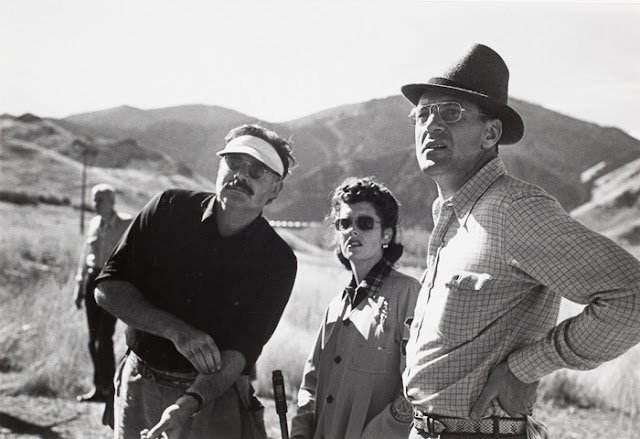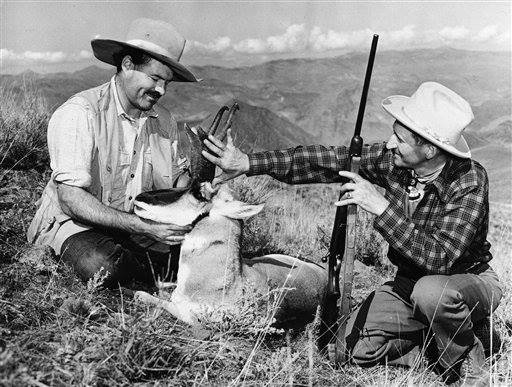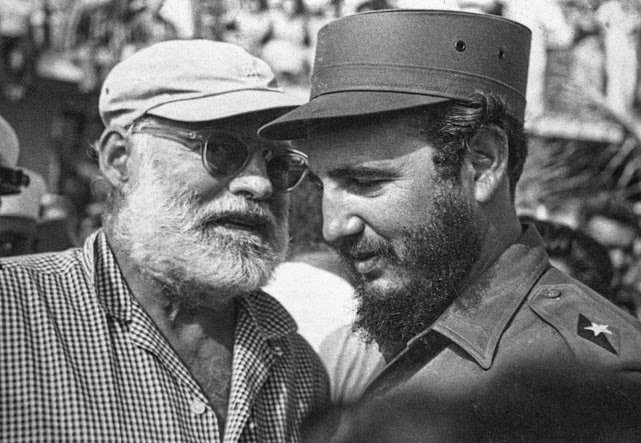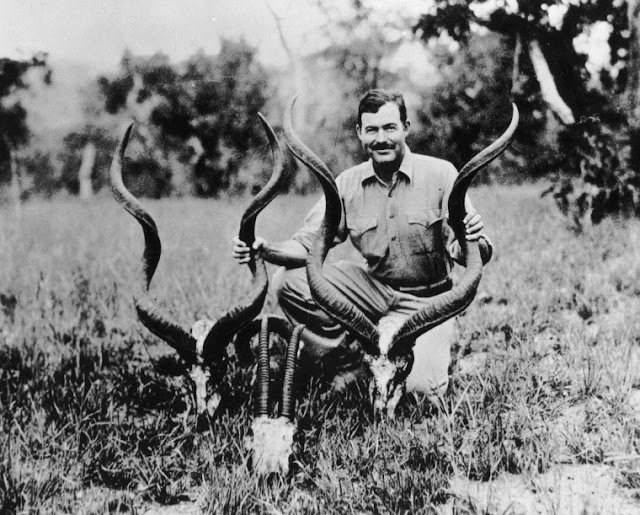
For 84 days, the old man Santiago, without catching a single fish, sets out into the deep sea on the 85th day with the help of a young boy, determined to catch a big fish and sails far away. A fish bites, and suddenly the line feels heavy, hoping it’s a big catch. Indeed, it’s a rare and large fish, a “Marlin”! Hoping to end his 84 days of misfortune, he makes extreme efforts to catch it, releasing other fish. With his small boat, he struggles to bring the big fish to shore. The heavy fish makes his boat unstable, and nature tests him. Predatory fish tear at the caught fish. By the time he reaches shore, only the fish’s skeleton remains. Despite knowing that luck was not on his side, Santiago’s relentless effort in “The Old Man and the Sea” and the world-famous author, Ernest Hemingway, who was born on July 21, 1899, and won both Nobel and Pulitzer prizes, have captivated readers and critics alike.
In his youth, Hemingway secured his first job as a reporter at the ‘Kansas City Star.’ He was advised to use simple, concise English in his news writing. This experience shaped Hemingway’s writing style, which was later adopted by many. Hemingway, drawn to the allure of war, served as an ambulance driver on the Italian front, returning with medals and injuries. Recovering from a broken heart, he began working for the ‘Toronto Star’ in 1920.

His first collection of stories, ‘In Our Time,’ and the novel ‘Fiesta,’ based on the life of a young man named ‘Ordóñez,’ gained popularity. Hemingway was fascinated by the struggle and emotions of a challenging young man, captivating readers with his writing. His fame soared with ‘The Sun Also Rises,’ a commentary on the post-war generation. ‘Men Without Women’ and ‘A Farewell to Arms’ extended his popularity internationally. His experiences in Africa inspired ‘Death in the Afternoon,’ a novel, and ‘Green Hills of Africa,’ a travelogue. His short story collections, ‘The Short Happy Life of Francis Macomber’ and ‘To Have and Have Not’ (1937), were published.
During the Second World War, he visited Spain four times, detailing war events in ‘For Whom the Bell Tolls,’ his most successful novel about the valor of American revolutionaries in Spain. Hemingway closely observed the Second World War. His 1950 novel, ‘Across the River and into the Trees,’ faced criticism, but ‘The Old Man and the Sea’ immortalized him. Posthumous works like ‘Islands in the Stream’ (1970), ‘The Dangerous Summer’ (1985), and ‘Winner Take Nothing’ (1933) contributed significantly to literature.



Hemingway’s life can be briefly described as operating a spy network against Germany in Cuba, journalism, experiencing the Second World War firsthand, witnessing bullfights, pursuing marlin fish, hunting in the African wilderness, and conveying thrilling sensations directly to the readers’ hearts. This writer, who enriched the English language, committed suicide on July 2, 1961.

